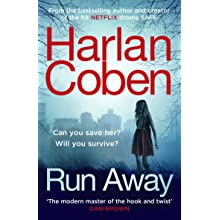Zweig only published one novel during his lifetime: Beware of Pity. Shortly after his suicide in 1942, an unpublished manuscript was found in a drawer in his study. The novel was in a first draft form and later picked up and hammered into a readable work. The Post Office Girl became Zweig's second novel.
At the end of WWI, during the Treaty of Versailles, the French wanted to punish Germany for reparations. In a word, this was a policy of 'overkill,' creating vast poverty and suffering across the defeated Austro-Hungarian Empire. One hears stories of young lads carrying piles of marks in wheelbarrows to purchase a single loaf of bread. Similar to all wars, the consequences of war go way beyond a bullet. The ordinary citizen suffers the most while the few grow rich, benefiting from the spoils of death. Blood money.
The Post Office Girl examines the financial ruin and massive unemployment in Austria after WWI. Christine, a 29-year-old daughter of a middle-class Austrian family, toils at a local Post Office for years after the war, earning only enough wages to barely eat and live.
At the beginning of the tale, Christine appears to accept her menial lot: living in a one-bedroom garret, taking care of her sick mother. The routine of the Post Office and taking care of her mother goes on for some years. Christine really knows nothing else apart from this little bubble of an impoverished existence. Only until a telegram arrives from her rich aunt from America.
Christine's mother is invited to meet her sister in a swank hotel in Switzerland. Because she is too sick to travel, Christine goes instead. This experience for Christine sets in motion a considerable transformation of mind as she is introduced to how the wealthy exist. Christine's aunt buys her beautiful clothes and introduces her to the wealthy guests in the hotel. Christine becomes an entirely different person, charming, happy with a newfound zest for life. This comes all crashing down when a jealous woman does some digging to discover Christine's true impoverished origins. The aunt becomes fearful that her friends will find her dubious past and sends her niece home in less than a day. Christine, of course, is devastated.
Many critics have called this novel a 'Cinderella' remake. A poor girl of diminished means attends the ball of the King. And from the stroke of midnight is returned to whence she came. Though the Post Office Girl is much deeper, complex, and nuanced than the famous fairy tale, this is the basic premise. This novel is a critical examination of Capitalism and the results of war.
When Christine returns to her old life, she becomes mean, critical and bitter. She feels now that her life is devoid of any meaning. However, this new transformation turns dark when she meets a man with similar sensibilities – cynical and feeling that the war has robbed him of his actual life. So, in fact, Christine experiences two transformations, indeed pendulum swings in the extreme.
I came to realize that those who really experience war understand its lies and diabolical consequences. Those who cheer for war or "regime change" are the ones who only understand the conflict in the abstract sense. These kinds of people are blatantly ignorant and highly dangerous, depending on their level in society.
Generally, Zweig's final novel gives us a window into Austria just after WW1. The poverty and hopelessness are visceral for the reader.
A worthwhile read.












